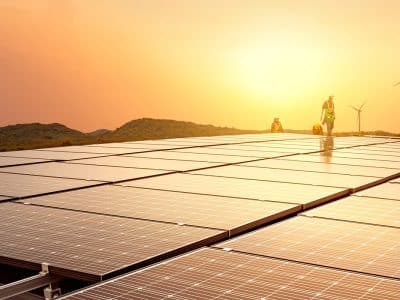There is a clear lag in the refining system to respond effectively and decide between supplying diesel or gasoline because global diesel and gasoline markets are witnessing blowout crack spreads in the $50-60 per barrel (bbl) range, Rystad Energy experts said.
The precarious situation is driven by inventory stocks across the globe being at their lowest levels historically and, therefore, unable to provide the necessary shock absorbers.
The loss of Russian refining owing to operational outages and product containment challenges has caused a diesel/gasoline hole greater than 1 million barrels per day (bpd) in Europe that is not easy to plug, Rystad Energy research shows.
“Diesel is the lifeblood of the global economy, essential to vital sectors such as agriculture, construction, and transportation – its price impacts almost all supply chains and goods,” said Per Magnus Nysveen, the head of Analysis at Rystad Energy.
“Governments face tough decisions. They can assist consumers by dropping taxes on diesel, but this will likely only increase demand, which may support the overall economy but will worsen the existing tight supply situation. If supply does not improve, governments will be forced to enact emergency plans to limit sales to consumers in order to ensure essential sectors are kept going.”

Addressing diesel supply-demand issues
On the demand side, the recovery is resilient as residual Covid-related restrictions are being removed.
On the supply side, the Russia-Ukraine conflict has disrupted product flows and crude flows to the European market at a time when the rest of the world has limited ways in which to respond.
Overall, the cost of refining has gone up alongside inflated gas, hydrogen, and utility costs. Thus, a constrained refining system amid recovering demand has resulted in precariously lower days of supply cover in most countries.
Many have mandated higher days of stock cover making it hard to solve regional product imbalances with trade flows.
To meet rising demand, refining runs will need to increase by 4.6 million bpd from June to August 2022, compared to current projections of 3.3 million bpd.
With a limited increase in overall runs, the second order lever of diesel versus gasoline optimisation does not have much to offer. Diesel/jet fuel maximisation is being pursued and indirectly fueling gasoline crack spreads.
Given the above indicators, Rystad Energy believes that gasoline’s slight contraction this week is only temporary and further upward movement can be expected.
US gasoline stock levels continue their downward trend, from 246 million barrels at the beginning of Russia’s war in Ukraine at end-February 2022 to 217 million barrels presently. Diesel cracks are also unlikely to soften ahead with stocks across the globe at lower levels.
Potential pathways out of the problems
Higher crude supply of the right medium-sour quality to maximise bottom of barrel upgradation would make a significant difference.
The US government’s release of 45 million additional barrels of predominantly light sweet crude is a positive signal.
OPEC is falling behind on its targets but the upcoming visit of US President Biden to Saudi Arabia is a key signpost to watch.
Asian and Middle Eastern refining runs in excess of domestic demand will offer some respite to plug shortages in the US and the EU.
Overall, the global runs base outlook is likely to lag below demand-driven runs. The loss of Russian refining and product exports is not going to be plugged easily by the rest of the world.
High diesel prices will drive hyperinflation globally and points towards a possible contraction in GDP.
Demand destruction may lead to a recession and restore balance, but this will be a painful experience for consumers.
Regardless, gasoline and diesel cracks are expected to continue to stay strong during the northern hemisphere’s summer.
Many will be hoping for a moderate correction from August and September 2022 onwards, but a lot rests on how sanctions on Russia take effect towards year-end.
Refining is currently resembling a deflated bike tire without a pump – squeezing one side to make more diesel or jet fuel will cause the gasoline supply to worsen and vice-versa, Rystad Energy experts said.








